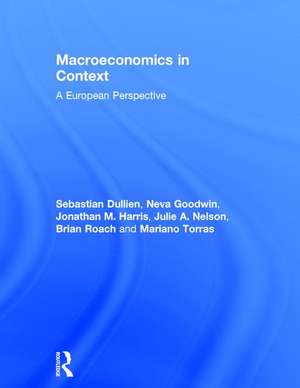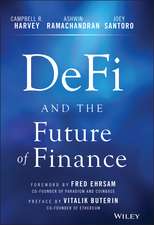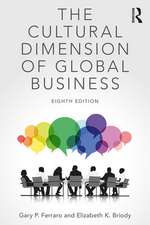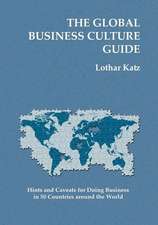Macroeconomics in Context: A European Perspective
Autor Sebastian Dullien, Neva Goodwin, Jonathan Harris, Julie Nelson, Brian Roach, Mariano Torrasen Limba Engleză Hardback – 21 aug 2017
This book is divided into four parts, covering the following key issues:
- The context of economic analysis, including basic macroeconomic statistics and tools;
- The basics of macroeconomic measurements, including GDP, inflation, and unemployment, as well as alternative measures of well-being, and the particular structures of the European economies;
- Methods for analyzing monetary and fiscal policy, including an in-depth coverage of the instruments and approaches of the European central bank and some coverage of an open economy;
- The application of the tools learnt to selected macroeconomic issues, such as the euro crisis, the global financial crisis, public debt, global development, and environmental sustainability.
Visit http://www.bu.edu/eci/education-materials/textbooks/macroeconomics-in-context-a-european-perspective/ for online resources for both lecturers and students.
A video of a panel discussion about the book can be found at https://youtu.be/xjHJrW9WP44.
| Toate formatele și edițiile | Preț | Express |
|---|---|---|
| Paperback (1) | 359.97 lei 6-8 săpt. | |
| Taylor & Francis – 23 aug 2017 | 359.97 lei 6-8 săpt. | |
| Hardback (1) | 900.84 lei 6-8 săpt. | |
| Taylor & Francis – 21 aug 2017 | 900.84 lei 6-8 săpt. |
Preț: 900.84 lei
Preț vechi: 1192.98 lei
-24% Nou
Puncte Express: 1351
Preț estimativ în valută:
172.40€ • 179.32$ • 142.32£
172.40€ • 179.32$ • 142.32£
Carte tipărită la comandă
Livrare economică 14-28 aprilie
Preluare comenzi: 021 569.72.76
Specificații
ISBN-13: 9781138185173
ISBN-10: 1138185175
Pagini: 712
Ilustrații: 340
Dimensiuni: 203 x 254 mm
Greutate: 1.86 kg
Ediția:1
Editura: Taylor & Francis
Colecția Routledge
Locul publicării:Oxford, United Kingdom
ISBN-10: 1138185175
Pagini: 712
Ilustrații: 340
Dimensiuni: 203 x 254 mm
Greutate: 1.86 kg
Ediția:1
Editura: Taylor & Francis
Colecția Routledge
Locul publicării:Oxford, United Kingdom
Cuprins
Introduction
Sample Course Outlines
PART I The Context for Economic Analysis
0. Macroeconomics and Well-Being
1. Economic Activity in Context
2. Useful Tools and Concepts
3. What Economies Do
4. Supply and Demand
PART II Macroeconomic Basics
5. Macroeconomic Measurement: The Current Approach
6. Macroeconomic Measurement: Environmental and Social Dimensions
7. The Structure of the European Economy
8. Employment, Unemployment, and Wages
PART III Macroeconomic Theory and Policy
9. Aggregate Demand and Economic Fluctuations
10. Fiscal Policy
11. Money, Banking, and Finance
12. The European Central Bank and Monetary Policy
13. Aggregate Supply, Aggregate Demand, and Inflation: Putting It All Together
14. International Linkages and Economic Policy
PART IV Macroeconomic Issues and Applications
15. The Financial Crisis and the Great Recession
16. Deficits and Debt
17. The Euro Crisis
18. How Economies Grow and Develop
19. Growth and Sustainability in the Twenty-First Century
Sample Course Outlines
PART I The Context for Economic Analysis
0. Macroeconomics and Well-Being
1. Economic Activity in Context
2. Useful Tools and Concepts
3. What Economies Do
4. Supply and Demand
PART II Macroeconomic Basics
5. Macroeconomic Measurement: The Current Approach
6. Macroeconomic Measurement: Environmental and Social Dimensions
7. The Structure of the European Economy
8. Employment, Unemployment, and Wages
PART III Macroeconomic Theory and Policy
9. Aggregate Demand and Economic Fluctuations
10. Fiscal Policy
11. Money, Banking, and Finance
12. The European Central Bank and Monetary Policy
13. Aggregate Supply, Aggregate Demand, and Inflation: Putting It All Together
14. International Linkages and Economic Policy
PART IV Macroeconomic Issues and Applications
15. The Financial Crisis and the Great Recession
16. Deficits and Debt
17. The Euro Crisis
18. How Economies Grow and Develop
19. Growth and Sustainability in the Twenty-First Century
Notă biografică
Sebastian Dullien is Professor for International Economics at HTW Berlin, University of Applied Sciences, and Senior Policy Fellow at the European Council on Foreign Relations. Prior to his appointment to the university in 2007, he worked in several positions, including economics editor for the Financial Times Deutschland, the German-language edition of the Financial Times. He has advised a number of ministries, members of the German and European Parliament, and several organizations of the United Nations.
Neva Goodwin is Co-Director of the Global Development and Environment Institute (GDAE) at Tufts University, where she is the director of the electronic Social Science Library: Frontier Thinking in Sustainable Development and Human Well-Being. Goodwin works toward a contextual economics theory that will have more relevance to contemporary real-world social and ecological concerns than the dominant economic paradigm does.
Jonathan M. Harris is Director of the Theory and Education Program at the Tufts University Global Development and Environment Institute, USA. His current research focuses on the implications of large-scale environmental problems, especially global climate change, for macroeconomic theory and policy.
Julie A. Nelson is Professor of Economics at the University of Massachusetts Boston and Senior Research Fellow at the Global Development and Environment Institute at Tufts University, USA. Many of her books and articles critique economic methodology from a feminist perspective. She has published in journals ranging from Econometrica and the Journal of Political Economy to Hypatia: Journal of Feminist Philosophy and Ecological Economics.
Brian Roach is Senior Research Associate at the Tufts University Global Development and Environment Institute and a lecturer at Tufts and Brandeis University, USA. He has published numerous articles on nonmarket valuation of natural resources, including drinking water quality, water-based recreation, and wildlife.
Mariano Torras teaches economics at Adelphi University in Garden City, New York, USA. A heterodox economist who specializes in ecological and development economics, Torras’s recent research has been in the areas of institutional economics and economic methodology; particular attention has been on approaches to addressing climate change.
Neva Goodwin is Co-Director of the Global Development and Environment Institute (GDAE) at Tufts University, where she is the director of the electronic Social Science Library: Frontier Thinking in Sustainable Development and Human Well-Being. Goodwin works toward a contextual economics theory that will have more relevance to contemporary real-world social and ecological concerns than the dominant economic paradigm does.
Jonathan M. Harris is Director of the Theory and Education Program at the Tufts University Global Development and Environment Institute, USA. His current research focuses on the implications of large-scale environmental problems, especially global climate change, for macroeconomic theory and policy.
Julie A. Nelson is Professor of Economics at the University of Massachusetts Boston and Senior Research Fellow at the Global Development and Environment Institute at Tufts University, USA. Many of her books and articles critique economic methodology from a feminist perspective. She has published in journals ranging from Econometrica and the Journal of Political Economy to Hypatia: Journal of Feminist Philosophy and Ecological Economics.
Brian Roach is Senior Research Associate at the Tufts University Global Development and Environment Institute and a lecturer at Tufts and Brandeis University, USA. He has published numerous articles on nonmarket valuation of natural resources, including drinking water quality, water-based recreation, and wildlife.
Mariano Torras teaches economics at Adelphi University in Garden City, New York, USA. A heterodox economist who specializes in ecological and development economics, Torras’s recent research has been in the areas of institutional economics and economic methodology; particular attention has been on approaches to addressing climate change.
Recenzii
"Macroeconomics in Context excels at presenting macroeconomic theory in a way that students can understand. As a bonus, it exposes students to issues--such as the environmental costs of production and the wider determinants of well-being--that soon will be at the center of economic policy-making." -- Eric Nilsson, California State University, San Bernardino
"Macroeconomics in Context is the best text I've seen for undergraduate teaching. By paying attention to the challenges we face today, such as environmental degradation and social issues, it lets students readily see why [the subject of] economics is important to learn. This text gives students the basics while raising questions about how we can do better." -- Valerie A. Luzadis, SUNY College of Environmental Science and Forestry, Syracuse
"After reviewing fourteen macroeconomics textbooks, looking for an alternative to obsolete ideas of infinite GDP growth with little consideration of environmental or social costs, I selected Macroeconomics in Context. ... This was the only book I found that covers mainstream theory while putting it into a social and environmental context--a much needed updated approach to macroeconomics." -- Gary Flomenhoft, University of Vermont
"I like this text very much. I like that environmental concerns are part of the discussion. I also like the no-frills presentation and the low price." -- Tom White, Assumption College (on the previous edition)
'This book is a truly Europeanised version of the well-established introductory textbook by Goodwin et al. which enriches the common narrative of economics by adding further perspectives and analytical approaches without being confusing or too complex. The European version contains a wealth of new content on debt and deficits, economic policies, institutions and actors in the European Union. The book will surely support students in gaining a profound, practical and multi-angled knowledge of economic issues which they can apply to understand and analyse real-world phenomena, like the emergence and evolution of the recent financial and euro crises which has so dramatically influenced European economies.’ — Prof. Dr. Torsten Niechoj, Rhine-Waal University of Applied Sciences, Kamp-Lintfort, Germany
‘An excellent source for lecturers who are struggling with teaching economics inside the straightjacket offered by the usual mainstream textbooks; it makes both studying and teaching more enjoyable, vision-broadening and real-life embedded by discussing issues within the historical, social and environmental contexts.’ — Associate Professor Derya Gultekin-Karakas, Istanbul Technical University, Turkey.
‘The new edition of Macroeconomics in Context is the best English language introductory macro textbook with a focus on Europe. Three unique features make it outstanding: first, the "contextual" approach – viewing economy as embedded in society, nature, institutions and policies; second, a thorough focus on the European Union; third, a response to the quest for more pluralism in theories, with both Keynesianism and mainstream macro plus related controversies.’ — Jan Priewe, Professor (em.), HTW Berlin – University of Applied Sciences, Germany
‘For decades there has been a lack of a relevant and pluralist introductory textbook to macroeconomics with a focus on the European economy. The European edition of Macroeconomics in Context fills this gap, and I hope it will be widely used in classrooms.’ — Eckhard Hein, Professor of Economics and Co-Director of the Institute for International Political Economy (IPE), Berlin School of Economics and Law, Germany.
’The long financial and economic crisis was a test for governance but also science. Gaps between economic doctrines and the real world were exposed. This book offers a fresh and accessible introduction to the principles and methods of macroeconomics and builds on them a lucid overview of current policy issues from euro area imbalances to sustainable growth.’ — László Andor, Head of Department of Economic Policy, Corvinus University, Budapest; former EU Commissioner for Employment, Social Affairs and Inclusion.
"Macroeconomics in Context is the best text I've seen for undergraduate teaching. By paying attention to the challenges we face today, such as environmental degradation and social issues, it lets students readily see why [the subject of] economics is important to learn. This text gives students the basics while raising questions about how we can do better." -- Valerie A. Luzadis, SUNY College of Environmental Science and Forestry, Syracuse
"After reviewing fourteen macroeconomics textbooks, looking for an alternative to obsolete ideas of infinite GDP growth with little consideration of environmental or social costs, I selected Macroeconomics in Context. ... This was the only book I found that covers mainstream theory while putting it into a social and environmental context--a much needed updated approach to macroeconomics." -- Gary Flomenhoft, University of Vermont
"I like this text very much. I like that environmental concerns are part of the discussion. I also like the no-frills presentation and the low price." -- Tom White, Assumption College (on the previous edition)
'This book is a truly Europeanised version of the well-established introductory textbook by Goodwin et al. which enriches the common narrative of economics by adding further perspectives and analytical approaches without being confusing or too complex. The European version contains a wealth of new content on debt and deficits, economic policies, institutions and actors in the European Union. The book will surely support students in gaining a profound, practical and multi-angled knowledge of economic issues which they can apply to understand and analyse real-world phenomena, like the emergence and evolution of the recent financial and euro crises which has so dramatically influenced European economies.’ — Prof. Dr. Torsten Niechoj, Rhine-Waal University of Applied Sciences, Kamp-Lintfort, Germany
‘An excellent source for lecturers who are struggling with teaching economics inside the straightjacket offered by the usual mainstream textbooks; it makes both studying and teaching more enjoyable, vision-broadening and real-life embedded by discussing issues within the historical, social and environmental contexts.’ — Associate Professor Derya Gultekin-Karakas, Istanbul Technical University, Turkey.
‘The new edition of Macroeconomics in Context is the best English language introductory macro textbook with a focus on Europe. Three unique features make it outstanding: first, the "contextual" approach – viewing economy as embedded in society, nature, institutions and policies; second, a thorough focus on the European Union; third, a response to the quest for more pluralism in theories, with both Keynesianism and mainstream macro plus related controversies.’ — Jan Priewe, Professor (em.), HTW Berlin – University of Applied Sciences, Germany
‘For decades there has been a lack of a relevant and pluralist introductory textbook to macroeconomics with a focus on the European economy. The European edition of Macroeconomics in Context fills this gap, and I hope it will be widely used in classrooms.’ — Eckhard Hein, Professor of Economics and Co-Director of the Institute for International Political Economy (IPE), Berlin School of Economics and Law, Germany.
’The long financial and economic crisis was a test for governance but also science. Gaps between economic doctrines and the real world were exposed. This book offers a fresh and accessible introduction to the principles and methods of macroeconomics and builds on them a lucid overview of current policy issues from euro area imbalances to sustainable growth.’ — László Andor, Head of Department of Economic Policy, Corvinus University, Budapest; former EU Commissioner for Employment, Social Affairs and Inclusion.
Descriere
This book lays out the principles of macroeconomics in a manner that is thorough, up to date, and relevant to students. With a clear presentation of economic theory throughout, this latest addition to the bestselling ‘In Context’ set of textbooks is written with a specific focus on European data, institutions and historical events, offering engaging treatment of high-interest topics, including sustainability, Brexit, the Euro crisis and rising inequality. Policy issues are presented in context (historical, institutional, social, political, and ethical), and always with reference to human well-being. Visit www.gdae.org/europeanmacro/ for online resources for both lecturers and students.
















